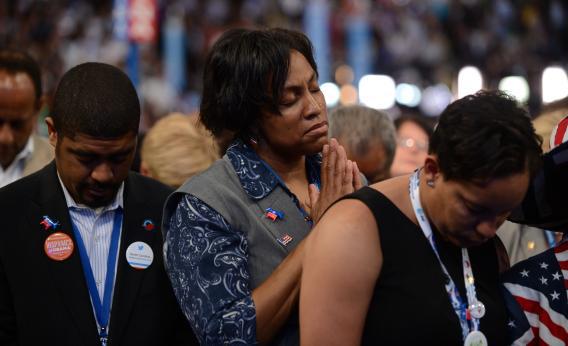While writing about the Iowa primaries last winter I came across this prayer calendar, which is put out by the organization associated with Republican kingmaker Bob Vander Plaats. Each day of the month, the calendar invites religious Iowans to pray over minute political maneuverings of local officials. March 1st, for example: “Ask the Lord to move HF 153 to the full House for a resounding victory for life from conception. Pray for Rep. Pearson as she manages HF 153.”
If religion is a way to approach timelessness, universality, and eternal mysteries of existence, here we find the metaphysical focused on deeply specific matters of local concern. Before a winter covering Republican primaries, it had never before occurred to me that you might use a bill number while addressing a deity.
Yesterday 1400 pastors mailed overtly political sermons to the Internal Revenue Service. This is the principal activity of “Pulpit Freedom Sunday,” a celebration of sorts in which “freedom” is taken to mean the right to both unencumbered political speech and tax-exempt status. The rule against this freedom has its unseemly origins in Lyndon B. Johnson’s attempt to silence opponents as he approached reelection. But the IRS almost never cracks down on political endorsements from church pastors. So perhaps the persuasive force of those mass mail sermons is supposed to fall less on the state than on other, less-politically active pastors, who at this time of year might want to speak less of the holy trinity and more of the godliest candidate for comptroller.
In any given local parish, wayward parishioners may well be calling out for more guidance in political matters. But Americans as a whole don’t want their sermons to sound more like cable news, which is to say flat, present-minded, and parochial. According to this Pew Survey, the majority think churches should stay out of politics altogether, a broader question than whether churches should endorse candidates. Notable exceptions are supporters of Rick Santorum, the candidate Bob Vander Plaats endorsed to win the Iowa primary.
It’s the nature of politics to suggest a complete lack of temporal perspective: all that matters is this issue, this election, this moment. I don’t presume to know why some people seek refuge from secular life within the confines of religious tradition, but I suspect it has something to do with an escape from perspectival narrowness. Pew’s surveys suggest that even if people are listening to Hannity on the way there and Rush on the way back, they want something bigger than HF 153 for which to pray.
